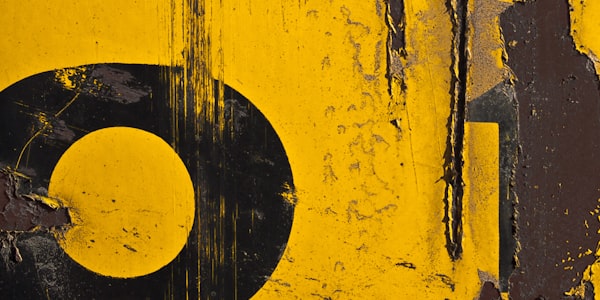The generation born in the information age challenges marketers with its new way of thinking. How should it influence a new way of marketing wine?
Millennials, also called Generation Y, might be a buzzword for some and a complete mystery to others. Aged between 21 and 34, they are the fastest-growing segment of wine drinkers in the US, moving away from beer in favour of wine and spirits.
Forbes magazine said, “It is time to please and retain these youthful customers whose buying strength will within only a few years exceed that of the Boomers” (a previous generation and the current big spenders).
Although the picture is quite different in South Africa, with this generation choosing spirits and ready-to-drink beverages (beer, cider, etc.), certain trends are relevant at a global level and are therefore worth highlighting. If applied effectively, they won’t benefit just this ‘new’ generation of consumers, but will be beneficial to all current and emerging wine consumers.
FOUNDED ON TECHNOLOGY
The Millennial Generation is digital savvy and constantly online. They have grown up with technology and with easy access to information, which has empowered them to think in a more individual way. For them the internet, and especially mobile technology, has always been around.
Most cellars in South Africa are lagging behind when it comes to technology. This includes websites that haven’t been updated for a few years and are now obsolete, and information that is often also a couple of years old and not mobile friendly. New websites need to use ‘responsive website technology’, which means, for those not in the know, a platform that will adapt from desktop to tablets to cellphone.
The second area is social media. Most cellars and brands have recognised the importance of social media and most cellars now have their own Facebook page and Twitter account. However, unless social media is used strategically, it won’t effectively reach any target markets. Thinus J van Rensburg from the digital agency Milk says, “For wine brands to remain successful, they must communicate directly to these consumers, on a regular basis, in a non-threatening way (use less wine jargon).”
THE NEED FOR AUTHENTIC STORIES
Millennials are more emotionally conscious. They want to hear authentic stories to connect with a brand. The same applies to wines. Millennials want more transparency from the winemaker – authentic wines with less pretense. “Social issues like sustainability and Fairtrade are all very important to Millennials,” says Charles Back from Fairview and Spice Route. Younger drinkers are picking a wine based on the story behind it, how they became aware of it, what unusual blend it is or what region it comes from.
“Break away from the standardised ‘wine-tasting and -sniffing’ protocol and introduce fun, approachable and sincere marketing strategies, which encourage consumers to become excited (and talkative) about your wine,” says Van Rensburg. The new generation will rather listen to their peers than to formal sources.
TIME FOR ADVENTURE AND EXPERIMENTS
The new generation is unconventional. They have a thirst for adventure; they want to experiment and they trust their own taste buds. A typical reaction from Millennials in a restaurant would be, “What a great list! I don’t recognise anything on it!”
This gives cellars the opportunity to experiment, to invest in new grape varieties, new methods of winemaking, new regions and even new packaging. The new generation is attracted by fun and graphic labels providing relevant information and conveying a story of their own.
Anthonij Rupert wines, with their Protea range designed by Mark Eisen, tick all boxes for trendy Millenials, as beyond the design there is also the green and upcycling component. Sommelier Ewan Mackenzie, also known as The Wine Thief, is riding this new wave of wine culture very successfully in the heart of Cape Town by “offering a specifically curated product to hospitality establishments, franchises and private clients,” Van Rensburg says. “It’s all about the experience (and whether it can be shared instantly).”
A NEW LIFESTYLE
Millennials believe in a lifestyle that includes a healthy balance between work, home and family. They are, especially in the US, turning to wine for its sophistication, sense of community and ‘shareability’. Wine is viewed as an affordable luxury, not as elitist or unattainable. They believe it denotes maturity and sophistication.
In South Africa wine is still viewed as ‘stiff and uptight’, which means there are barriers to entry. For cellars this means the opportunity to create original tasting experiences, which will allow consumers to engage with the wine and the brand. Using these opportunities to ‘edutain’ and make wine more fun, will help gain market share in the drinks business.
Wine brands that want to be visible and part of this new wave need to fit in and embrace the Millennials’ lifestyle. A way to do so, is to be involved in meaningful events. An example is Backsberg who is sponsoring InterVarsity Vino Varsity for the seventh year, or Fairview and Spice Route creating a completely engaging food and wine experience.
“South Africa’s key challenge when it comes to marketing to the Millennials is that an older generation is driving the process and is often resisting change,” says Simon Back from Backsberg.
To see changes based on what we have learnt from the new generation, the wine industry needs to be more authentic, more engaging (on- and offline) and focused on creating special experiences.
*Christine Lundy is a French-born marketer and lifestyle writer.
more on wineland.co.za




